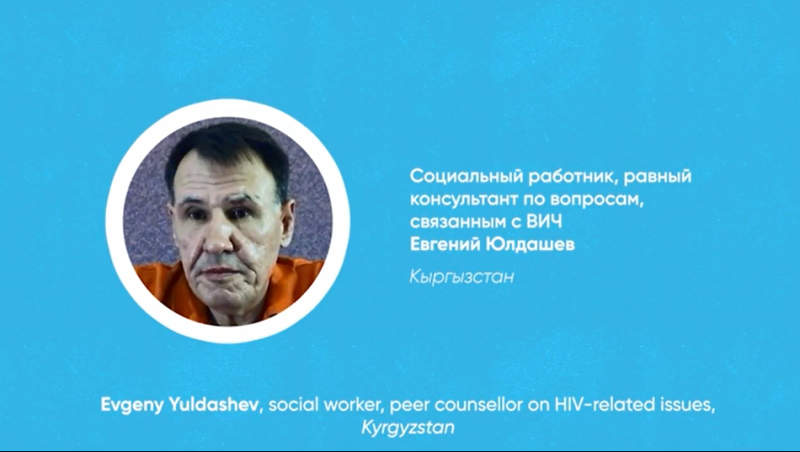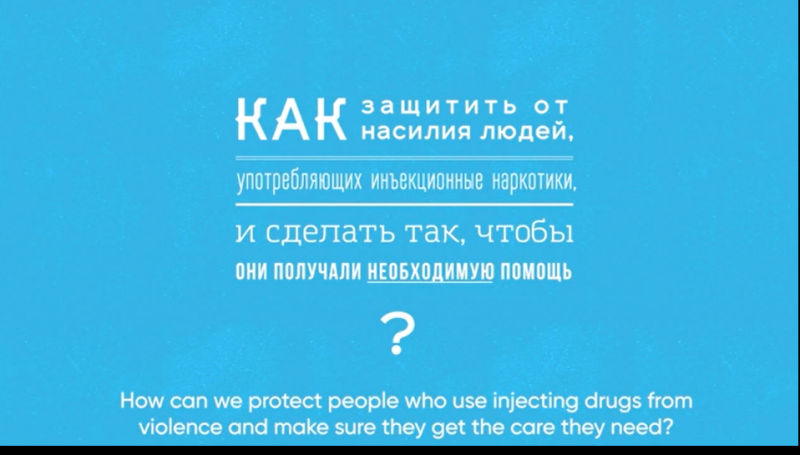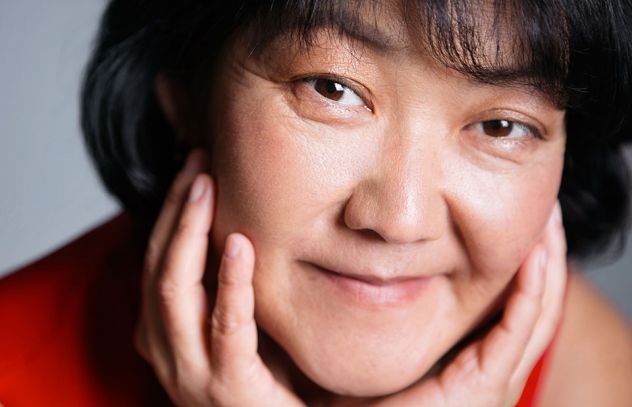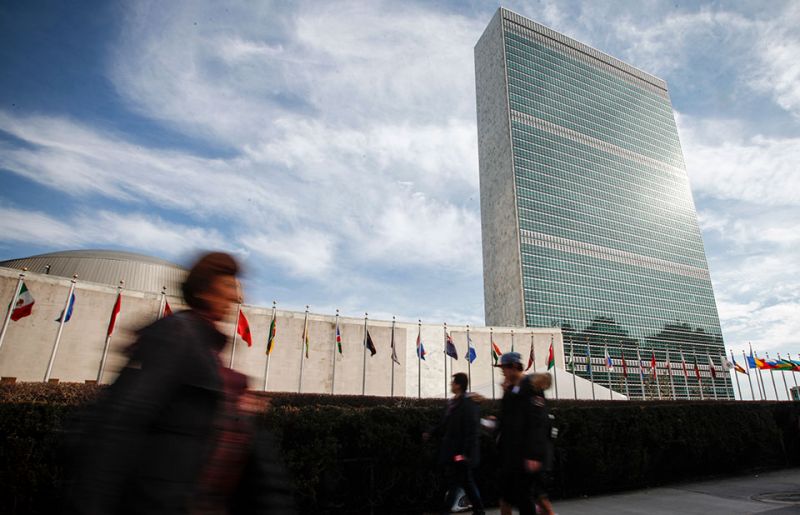At the United Nations High-Level Meeting on AIDS, which will take place from 8 to 10 June, Member States will adopt a new political declaration to bring the HIV response back on track. After the uneven progress made in the HIV response since the 2016 United Nations High-Level Meeting on Ending AIDS, this year’s high-level meeting will be the springboard for a decade of action to reduce inequalities and root out the social determinants that fuel the HIV epidemic.
In order to find out more about civil society’s aspirations and hopes for the high-level meeting and political declaration, UNAIDS talked to two civil society representatives, both of whom are living with HIV. Jacqueline Rocha Côrtes (JRC) is from the National Movement of Women Living with HIV/AIDS (MNCP/Brazil), the Latin American and the Caribbean Movement of Positive Women (MLCM+) and the National Institute of Reassigned Women (INAMUR/Brazil). Andrew Spieldenner (AS) is the Executive Director of Mpact. Both are members of the Multistakeholder Task Force to the HLM and were involved in drafting the 2021 high-level meeting civil society declaration, in which civil society organizations urge Member States to focus efforts and resources where they are most needed and to adopt a political declaration that explicitly recognizes who is most at risk of HIV and acknowledges why this is so, to commit to fully fund and support effective HIV responses and to hold Member States accountable for their actions.
What is the purpose of the civil society declaration you released ahead of the high-level meeting?
JRC: The civil society declaration has several purposes. First of all, to bring together the main inputs given by civil society globally on the desired content of the 2021 political declaration on AIDS. Secondly, the civil society declaration serves as a tool to mobilize community efforts locally and regionally and to harmonize and sharpen our positions in order to build a stronger community position on our demands worldwide.
AS: The civil society declaration released ahead of the high-level meeting is a clear statement of the values, concerns and needs of our communities. Where Member States might be more concerned with politics, civil society continues to elevate and centre those most impacted by HIV—the same populations most often marginalized by governments through punitive laws and policies. As civil society, we want to ensure that Member States understand where we stand, in the hope that they support our work and communities in the development of the political declaration.
What are the major asks from civil society to Member States?
JRC: The major asks from the civil society declaration, from my personal perspective, are to show and remind Member States how strong we are and of our ability to mobilize and guide what is needed to end AIDS. It is an opportunity to show that we, the communities, are alive and attentive, even more so during times like this, where the COVID-19 pandemic has had such a negative impact on the response to AIDS. It is also a call to international and multilateral organizations.
AS: We want Member States to recognize the disproportionate impact of HIV on sex workers, people who use drugs, transgender people and gay and bisexual men and to centre the needs of key populations in the HIV response. We want Member States to support the delivery of necessary HIV interventions, such as comprehensive sexuality education, harm reduction in all its forms and HIV prevention and treatment. We want Member States to protect sexual and reproductive health and rights. We want Member States to be flexible with the Trade-Related Aspects of Intellectual Property Rights (TRIPS) with HIV technologies and to fully fund the HIV response.
What are the expectations of communities and civil society organizations for the upcoming high-level meeting and new political declaration?
JRC: In the political declaration, we expect to see a minimum standard of progressive broad language that includes everyone in order to make it clear that, when we refer to the response to AIDS, we are referring to human rights, the flexibility of trade agreements, the financing of the AIDS response, the community-led responses, the reduction and elimination of gender-based violence. We expect the political declaration to include firm commitments to fulfil the many goals established in the 2016 political declaration and in other political declaration that have not yet been met, as well as the most recent priorities established by the UNAIDS Global AIDS Strategy 2021–2026, agreed by many countries, which calls for the elimination of inequalities to end AIDS by 2030.
We also hope that conveniently politically correct technical language won’t serve as a veil to cover particular interests, leaving aside issues such as sexual and human diversity, sexual health and reproductive rights and the reduction and gradual elimination of punitive laws that further stigmatize people and punish citizens, who are often imprisoned or killed simply because they exist as they are.
AS: As civil society and communities, we expect Member States to support the Global AIDS Strategy 2021–2026. We understand that some Member States will be against the language describing key populations, as well as against key HIV interventions, including harm reduction, comprehensive sexuality education and TRIPS flexibilities. We hope that Member States can seek compromise to embrace and support what’s necessary to move forward in the HIV response.
Some Member States are still reticent to advance the agenda when it comes to key populations, drug use and the criminalization of sex work. What would be your message to them?
JRC: My message to them is that whether they accept it or not, humanity will not be linear like some of their political and economic projects and even social projects that try to dictate the course of human lives, over which the authorities have no governability or rights. In the same way that United Nations Member States refer to national sovereignty on whether to adopt or not certain measures, people have an inalienable autonomy to decide what is best for their lives and how they want to live.
It is imperative that Member States recognize the existence and rights of key populations.
As a reassigned transsexual woman living with HIV for 27 years, I cannot help but state that if we want to end inequalities we will necessarily have to approach and embrace human diversity.
AS: After 40 years of HIV, the disproportionate burden of HIV remains on key populations, including people who use drugs, sex workers, gay and bisexual men and transgender people. We cannot end the HIV epidemic if we do not centre the needs of key populations, including the greater involvement of people living with HIV. If Member States continue to ignore our needs, marginalize our communities and legislate against us, then the HIV epidemic will continue unabated, no matter the advances in HIV technologies.
Once the political declaration has been adopted, what will be the role of civil society in making it a reality on the ground?
JRC: We will do what we have always done—we will advocate and influence politics. We will monitor and mobilize, fight, carry out community-led work and provide community responses, build and act with solidarity, respect the internal dynamics of the various sectors, including the governments, but act on our rights and demand that our governmental authorities to do their work and comply with their commitments and duties.
And we count on UNAIDS, one of our most valuable partners, and on other United Nations agencies.
AS: The global key population networks have been advocates for community-led responses and accountability mechanisms. With the support of multilateral and philanthropic funding, we will continue to support grass-roots local and regional efforts. Unfortunately, with shrinking civil society space and funding, this will be a challenge. We need multilateral and philanthropic support in order to continue this role.









